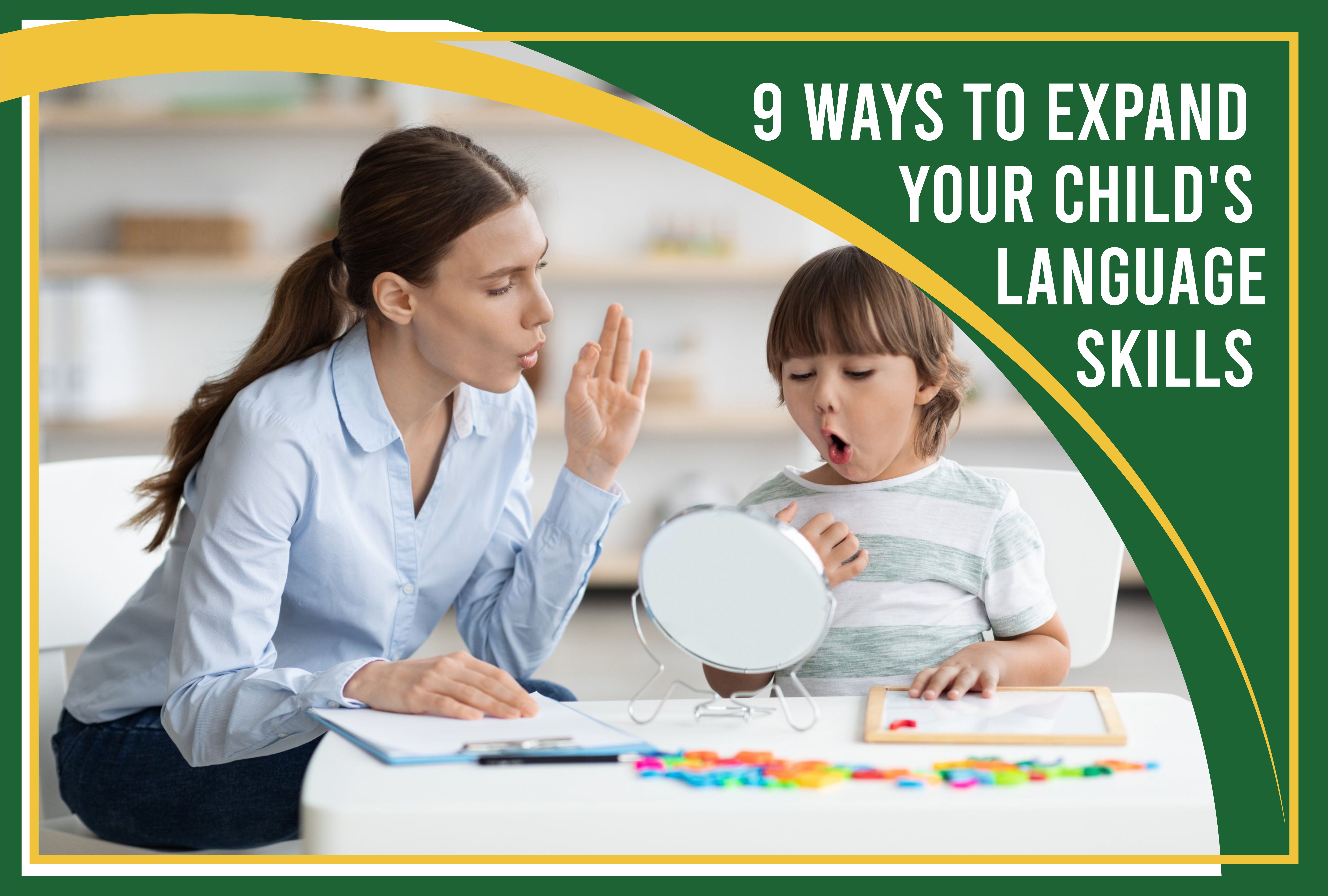9 Ways to Expand Your Child's Language Skills
The importance of developing language skills in early childhood cannot be overstated. Language skills play a critical role in a child's overall development and lay the foundation for all future learning. These skills support a child's ability to communicate their needs, explore their environment, and engage in social interactions.
While all children develop at their own pace, there are certain things that parents and caregivers can do to support their child's language development. Below are nine tips for expanding your child's language skills:
Talk often with your child
This is perhaps the most important thing you can do to support your child's language development. Conversation is a great way for children to learn new words and practice using them in a variety of contexts. You can help your child expand their vocabulary by talking about the things you see around you, describing your emotions, and asking questions. You can also encourage your child to tell you stories, both made up and from their own life experiences. For example, you can say, "Tell me about your favorite part of the day" or "What did you do at school today?" Ask them open-ended questions so that they will have to elaborate on their answer.
Make reading together a daily habit
Reading is another excellent way to support your child's language development. Not only will they be exposed to a variety of new words, but they will also learn how to put those words into sentences. You can make reading time even more beneficial by talking about the characters and events in the story as you read. This will help your child understand how stories are structured and how to use language to express ideas.
Make it a point to carve out time for reading on a daily basis. Whether it's before bedtime or first thing in the morning, find a time that works for you and stick to it. You can even make reading a part of other activities, such as while you're waiting in line at the grocery store or riding in the car.
Listen to audiobooks together
Audiobooks are an excellent way to expose your child to new vocabulary and language concepts in an engaging way. Many children's audiobooks come with accompanying materials, such as pictures or activity sheets, which can also be used to support your child's learning.
Listening to audiobooks together is a great way to unwind at the end of the day or during long car rides. It's also a perfect activity when you need hands-free time, such as while cooking dinner or doing laundry.
Encourage your child to ask questions
One way to encourage your child's language development is to encourage them to ask questions. This will help them practice using language to express their thoughts and ideas. It will also encourage them to think critically about the world around them.
When your child asks a question, take the time to answer it fully and thoughtfully. This will allow them to hear new words and learn more about the topic at hand. If you don't know the answer to their question, take the opportunity to look it up together. This can be a great learning experience for both of you.
Play word games together
Word games are a fun way to support your child's language development. There are many different types of word games, such as Scrabble, Boggle, and Word Jumble. These games help children learn new words and practice using them in different contexts. They also promote critical thinking and problem-solving skills.
Encourage your child to sing songs
Songs are a great way to expose children to new vocabulary words in a fun and engaging way. They also help children learn about rhythm and rhyme, which are important components of language development. There are many ways to incorporate singing into your daily routine. You can sing songs together while you're getting ready for the day, cooking dinner, or taking a walk outside.
Leverage screen time for learning
Screen time doesn't have to be a bad thing if used in moderation. In fact, there are many ways to leverage screen time for learning and developing language skills. For example, watching educational programs or shows can help kids learn new words and concepts. Similarly, playing language-learning games can also be a great way to boost language skills. Many games include language components such as vocabulary words or phrases. By playing these games, children can learn new words and deepen their understanding of grammar. With a little bit of creativity, screen time can be turned into a valuable language learning opportunity.
Play pretend with your child
Pretend play is a great way to encourage your child's language development. When children pretend, they often use words and phrases they wouldn't use in everyday conversation. This helps them expand their vocabulary and learn new ways to use language. Additionally, pretend play helps children develop critical social skills such as communication and collaboration.
Take a trip to the library
The library is a great place to explore books and other materials that can support your child's language development. Many libraries offer programs for kids, such as story time or book clubs. These programs provide an opportunity for kids to interact with others and practice using language. In addition, many libraries have resources that you can check out, such as books on tape or DVDs with educational shows.
No matter what approach you take, remember that every little bit of effort counts when it comes to supporting your child's language development. By incorporating some of these activities into your daily routine, you can make a big difference in your child's language skills and help them reach their full potential.
At Mrs. Myers' Learning Lab, our innovative small group programs are framed around children's natural high energy and individual interests, technology, music, and games. Your child will engage in reading and learning activities that feel like play! Visit us to learn more!





